Ada was born at 2:12pm on July 6th. The time since has, of course, been like none other in my life so far. Here are some field notes.
1. My baby is the cutest baby
I knew going in that parents tend to find their own kids cuter than other people do, but the feeling is not what I imagined. I imagined I would feel similarly about her to the people I’ve fallen in love with: that I would prefer looking at her to anyone else, but still be able to see how she is not objectively the best looking baby alive.
But no, I actually cannot empathize with the view that she is not the cutest. When I see babies on packaging for baby stuff, I’m like, really? You couldn’t find a cuter baby? I have one that’s way cuter right here!
It’s odd because, as I’ve said before on this blog, I’ve always found babies really cute. I cannot relate to the “puppies are cuter than babies” sentiment. I love babies.
But now that I have my own, other babies seem so lame in comparison.
2. Baby crying is funny
I’m with Tim Urban on this one.
The second time Ada cried — the first of course being when she initially emerged — was when the nurse put a thermometer in her armpit. Just a touch of cold metal on her skin and she was screaming, louder than any cry of pain I let out in the process of birthing her.
Look, I love her, I don’t want her to suffer… but most of the time that she cries she’s just being so dramatic. It’s often funny!
I strongly recommend cultivating this attitude with a newborn if you can manage it.
See, there’s this evil thing that babies do in their first few days of life called “cluster feeding,” which is meant to increase their mother’s milk supply. First, they get hungry, cry, get fed, and fall asleep. It seems they’ve finished eating.
The eating process is usually messy at this point, in part because you, the parent, have no idea what you’re doing. Sometimes they need a diaper change. They spit up on themselves and on whoever is feeding or burping them. I’d be impressed if any first time mother had figured out how to use a nursing bra effectively enough at this point to not have leaked everywhere.
The baby seems done, so you get them and yourself cleaned and changed and ready to sleep. This can take up to 20 minutes, at least if you’re new like us. And then as soon as the baby is snug in their bed, they ask for food again. So now you have to do the whole thing all over again. And sometimes again. And sometimes, even again.
How do they ask for food exactly? Well, they can’t use their words, so instead they turn into a feral little monster and make the biggest scene they possibly can within the constraints of their teeny tiny bodies. They scream, so effortfully that their voice strains and cracks at the peak. They scrunch their nose and open their mouth wide. They stick their hands in their mouth or wave them wildly in front of their face. They alternate between bobbing their head up and down and shaking it side to side, in a manner that resembles what rats or pigs might do to shimmy past their littermates to their mother, but which as a single human baby is completely counterproductive to latching.
This sucks. But surely it sucks a lot less if you can manage to find this behavior as funny as I do.
3. Babies can be too good at sleeping apparently
I was instructed by the nurses at the hospital to feed her on demand but not to let her go more than three hours between feeds. Unfortunately, at just a couple days old, Ada was sufficiently empowered that “do not let her” was an impossible instruction for me to follow. Specifically, she was a sufficiently empowered sleeper.
On her second morning out of the womb, from 6am to 7:30am, I tried to wake her up. I started off gentle: I took her out of her sleep sack and onesie, which was what the nurses at the hospital had suggested was all I’d need to do to get her up and crying. She slept soundly. I rubbed her all over. I massaged her hands and feet, as the internet told me to do, which she just seemed to find soothing. I talked directly into her ear at escalating volumes.1 I pulled her ear lobes, bit her cheeks, and blew raspberries on her belly. She slept soundly.
So I moved down the list of baby waking methods that the internet recommended, toward the section that more closely resembled baby torture methods. I dripped warm water on her head. Then cold water. Then on her chest. Then on her head again.2 And finally, she woke up…and promptly went back to sleep when she got on my warm chest in position to eat. So I gave up and fed her thirty minutes later when she decided she was ready — about five hours since she’d last eaten. Since this incident, I’ve tried again once or twice to wake her from a deep sleep with similar results, so now I let her lead the way.
I acknowledge that this is hardly a problem, or at least it’s one of the most desirable problems a new parent could have. I was excited about my husband as the father to my children for a variety of reasons, but it had not occurred to me when I decided to conceive a child with him that she could inherit his exceptional powers of sleep. And god I am so grateful that she has, even if it means we sometimes have to break the newborn feeding schedule rules.
4. People know nothing about newborns
People like to talk bad about newborns. Not only are they exhausting, non-parents will say, but they are also ugly, unconscious, and uninteresting.
The thing is, hardly anybody who is not a parent has interacted much with a newborn as an adult.
Most newborn babies are pretty isolated for their first few months of life. You will hardly see them at grocery stores or cafes or parties. Regulation forbids you from seeing them in movies or advertisements either — it’s always older babies who play newborns.
When people meet Ada, they often comment on how small she is. People have asked whether she’s a premie. She is absolutely not: she was born 5 days late, 7lbs 10oz, 21 inches long — a slightly above average sized newborn!
People also say she’s very cute. Obviously I agree, but I am blind to this so they could be lying to me. Except, I know these people, and if they didn’t find her cute they wouldn’t lie; they would just not comment on it.
Her visitors marvel at her facial expressions, her attentiveness while awake, and the depth of her sleep, too.
Like most newborns, she is adorable, interestingly alien, hilariously animal, and definitely in possession of her own personality.
So I no longer put any stock in the insults non-parents throw at newborns. They’re just repeating what they’ve heard.
5. I have better hygiene postpartum than I did before
I am a personal hygiene minimalist. I shower every 4-7 days, only wash my face when I shower,3 brush my teeth on average about 1.5 times a day, and hardly ever floss.
I heard that postpartum, I’d be lucky if I found the time to shower and brush my teeth at all, that I’d be milk and poop and blood-stained. I was prepared for that!
But I’ve been showering every 1-2 days, brushing my teeth at least twice a day, and flossing while I breastfeed — what better to do with my free hand?
Some of the reason for this is that I need the showers more. Body odor actually increases postpartum, supposedly to make it easier for babies to recognize their mother’s scent. I don’t want to take this from her, but I also don’t like being super smelly, so I shower often but only with water.
I suspect another part of my drive to be cleaner comes from living more in my body. Before this, personal care stuff felt like a boring but necessary part of my day that I get through so I can move on to more cognitively stimulating activities. Now, I take more pleasure in the process, and am more aware of and bothered by the consequences of not doing these things.
And part of it is that I can finally wear my old clothes again, my favorite clothes. Pregnancy can be cute — I mostly liked my body when I was pregnant, too. But now I can feel cute in the way I used to again, which feels exciting and refreshing. And it’s much easier to feel cute when I also feel clean.
6. “Baby blues” is not what I expected
For those who don’t know, in the couple days after giving birth, a person goes through the steepest hormone shift of their life. Estrogen and progesterone plummet, among other things.
This tends to bring on what is called the “baby blues”: a couple weeks of feeling kind of down after giving birth. For most, this resolves itself quickly, but for some, this spirals into postpartum depression.
I expected to feel a little depressed. I have been a little depressed before, and it’s no fun. I expected I might feel unmotivated, anxious, and antisocial. I was prepared to not feel very strongly about my baby for a while, prepared for holding my baby to feel nowhere near as good as I had imagined, because of my own background emotional state. That happens to some people, and I was prepared not to feel guilty or panicked if it happened to me.
To my surprise, this time has felt very not depressive to me.
Don’t get me wrong, there was certainly a crash. It hit me suddenly on the second morning after birth. I was having the normal intrusive thoughts that new parents have about all the ways my baby could get injured or die, and then it occurred to me that probably, someday, perhaps at 100 years old with her own great grandchildren, she will die. I cried about this for an hour. Later that day I cried while writing a thank you note to a friend. Then I cried telling Ada I loved her. And so on.
I was more emotional, more fragile, more easily moved, but I don’t experience that as suffering, and it feels nothing like depression. Sure, it’s embarrassing when the breakdown happens at Target, but the breakdown itself doesn’t hurt much.
I have no idea how typical my experience is relative to the more depressive thing I was expecting.
7. Having people around has been great
New parents, especially mothers, tend to be very isolated. They live alone. Some keep the baby away from visitors because of infectious disease risk. Some might feel sad and antisocial in the way I had feared, and be disinterested in talking to people. Perhaps some care about how they present themselves and would prefer not to be seen un-bathed and un-makeuped in their PJs. Perhaps some are just too tired.
This isolation often leads to loneliness.
I, on the other hand, have probably had more social interaction in the last week than I typically did pre-baby. I have five roommates who aren’t my husband or baby. My immediate family has been staying with us. Many friends have come over to meet Ada. Our house’s weekly open dinner party, Taco Tuesday, continues to run and brings in about thirty guests.
I’m ~80th percentile introverted, and still this socialization has felt extremely valuable, and perhaps contributed to my not feeling at all depressed. I feel completely myself. I do not feel lonely, or starved of adult conversation the way I’d heard many new mothers do. Plus, I enjoy showing off Ada to people: look at this amazing little person I made with my body!
8. Kids dying hits different now
As I said before, I cried once at the thought that Ada might die eventually. At one point I was out walking with Austin and he was pushing Ada in her stroller down a hill and made a joke about the stroller rolling away, and I cried. At another point he started singing “Rockabye Baby” to her, and I informed him that the song was about a baby dying, and I cried while reciting the lyrics.
I’ve never been able to cry on demand. I’ve never had a thought so sad that “think of something really sad” worked as a trick. Now I do.
People worry a lot about SIDS: sudden infant death syndrome. This is, in some sense, overblown. Fewer than 1 in 1000 infants die of SIDS, and when they do, it’s almost always because they were sleeping in some hazardous position: with an adult on a sofa or chair, or with an adult who had been using drugs or alcohol.4 It feels very rationalist to point out that all the fuss about SIDS is pretty irrational.
But as a parent, I find SIDS terrifying and impossible to ignore. I confess I do not, in my gut, feel a big difference between 1 in 10000 and 1 in 10 here. What is salient to me is that the person in this world who it would hurt most to lose is also the one I’m most likely to lose suddenly. Plus, I have very little first hand evidence that when she goes to sleep, she’ll wake up again. She’s probably only done that about 100 times so far. The more she does it, the calmer I feel. I still sometimes check to make sure she’s breathing in the middle of the night, but far less often and less anxiously than the first time she slept in the hospital.
My disturbance about my own baby dying extends to other babies as well. In the battle of EA cause areas, my heart has always been with animal welfare and my head has long been with existential risk. Now, I feel my heart strings increasingly pulled by global health — saving babies.
9. I feel more loved
My husband asked me earlier this week if I felt more grateful to my parents, now that I know what it takes to care for a newborn. Honestly, I do not. I knew having a baby was hard. I knew labor was going to hurt like nothing before, and that in the months that followed I would be sleep deprived and messy and maybe even sad. If anything, things are notably easier than I had expected, because I happen to be blessed with an exceptionally easy baby. According to my mother, none of her children were as easy at this point as mine is.
I was already grateful for my parents. This has not been an update.
I do, however, feel more loved by my parents, because I understand better now what I mean to them: I feel an unprecedented and overwhelming amount of love for Ada. A month ago I would not have found those words surprising, but I also would not have understood what they really mean, how it really feels. I cannot express it here either.
So, though I can’t say I feel more grateful to my parents, I do feel grateful to have learned a new and wonderful fact about the world: that almost everyone has one or two people in their lives who love them as much as I love Ada.
She did pass her hearing test at the hospital, so the problem is not with her ears.
And when I told the nurse later that sometimes Ada sleeps too much, she said that sometimes first time parents are just too gentle and I needed to be more aggressive. Lol.
If you’re a man this may seem if anything like a lot — I do use face wash — but I think this is very infrequent for women.
Because the risky situations are those that involve sleeping on the same surface as an adult, the campaign against SIDS involves nurses and posters and hospital questionnaires repeatedly emphasizing how important it is that the baby sleep alone. Still, we cosleep. The risk in a bed with a sober adult is hardly elevated, and there’s a reasonable argument to be made that well-practiced cosleeping actually reduces SIDS risk. It helps babies sleep and it makes feeding the baby at night less costly, both of which help parents get more sleep. Thus, it reduces the chance of ending up in an actually hazardous situation, like drifting off while nursing in a chair. Plus, sleeping in the same room at least does reduce SIDS risk.

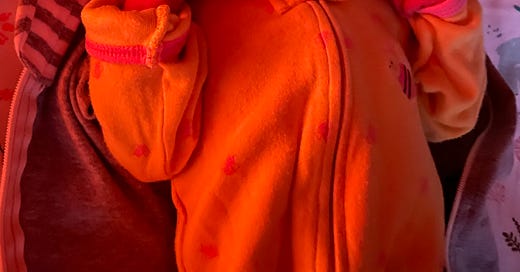




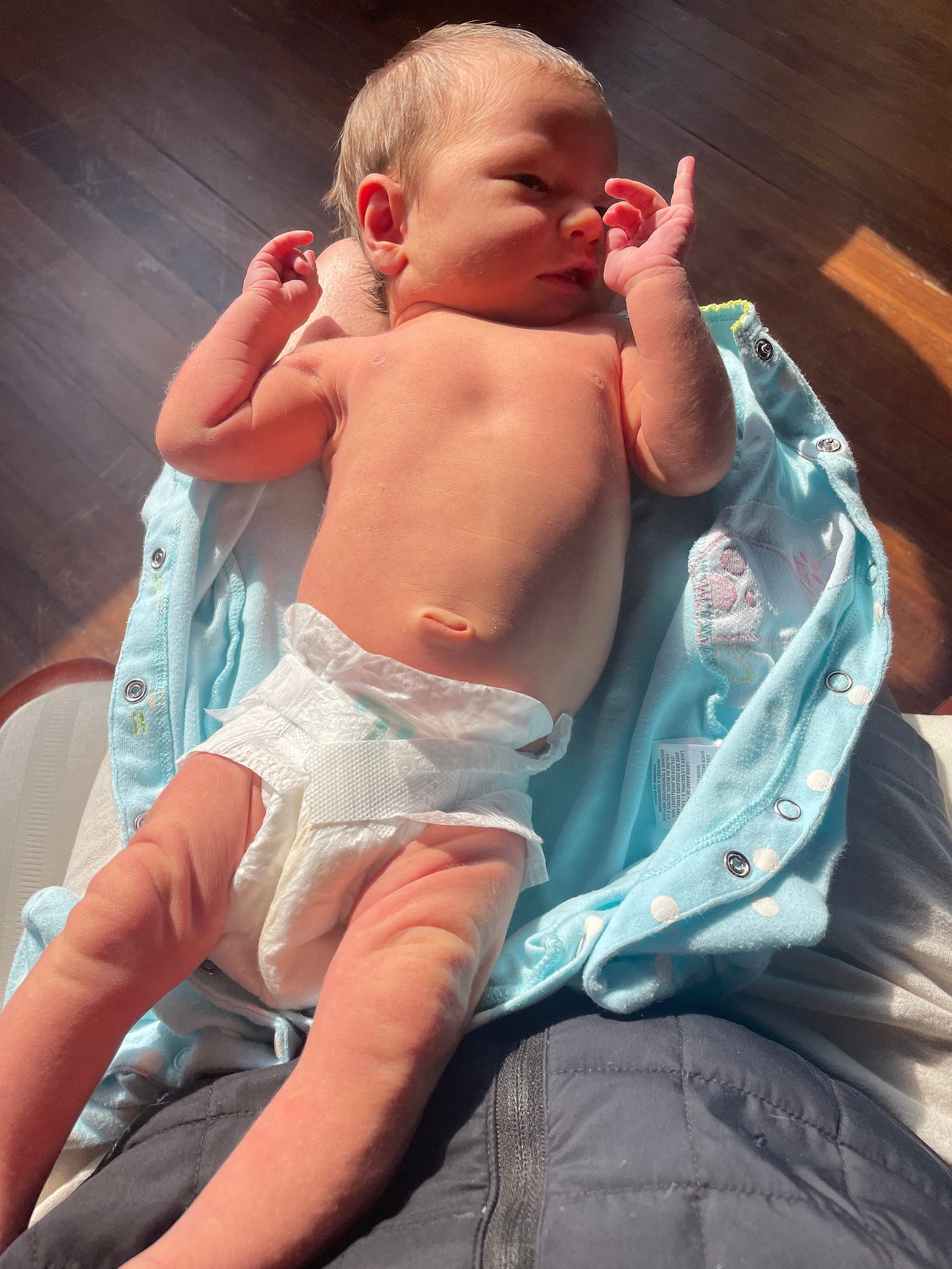
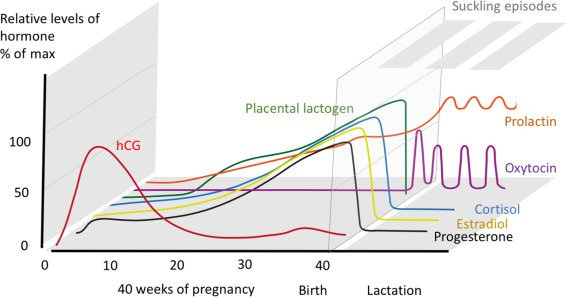
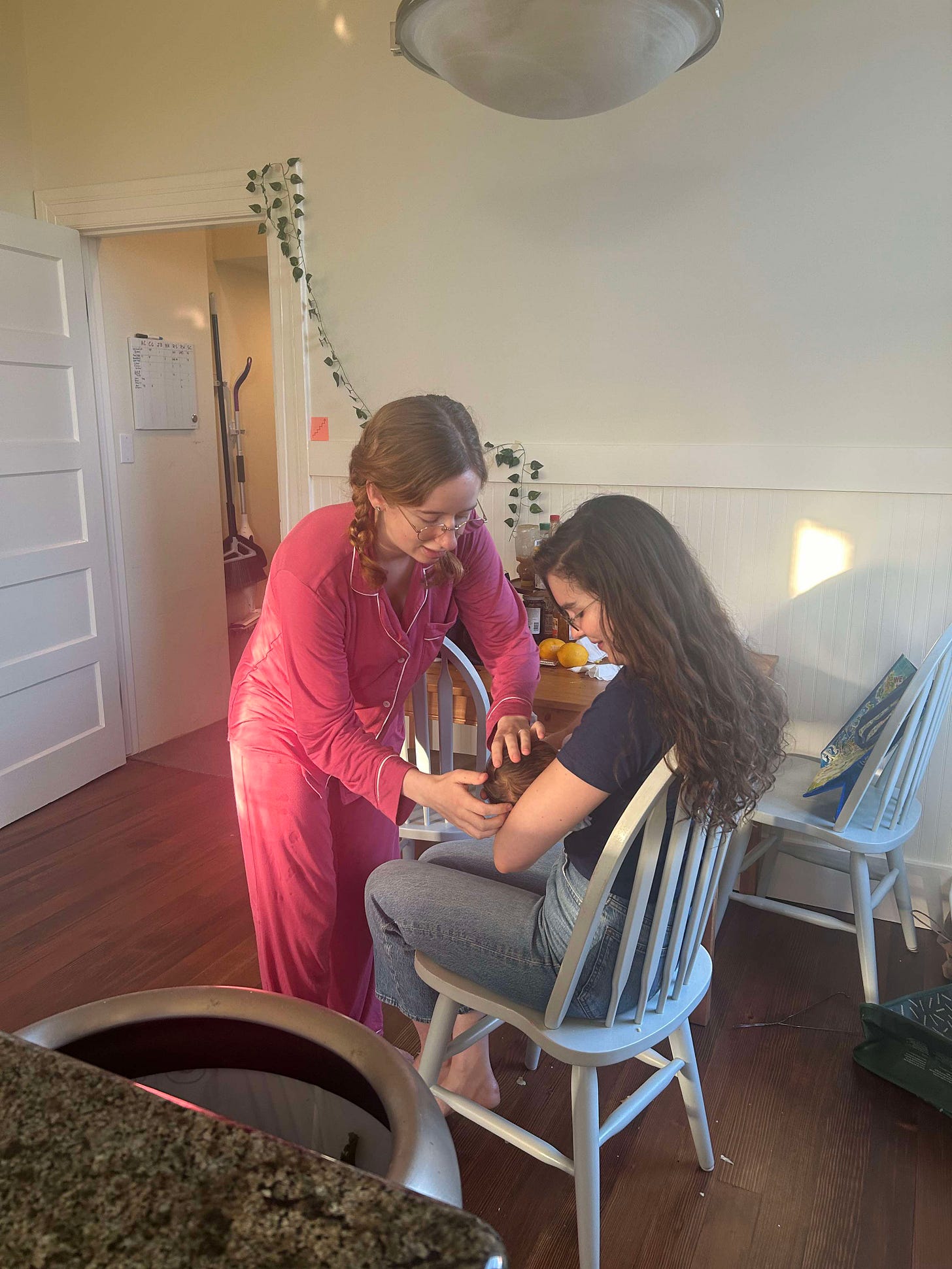
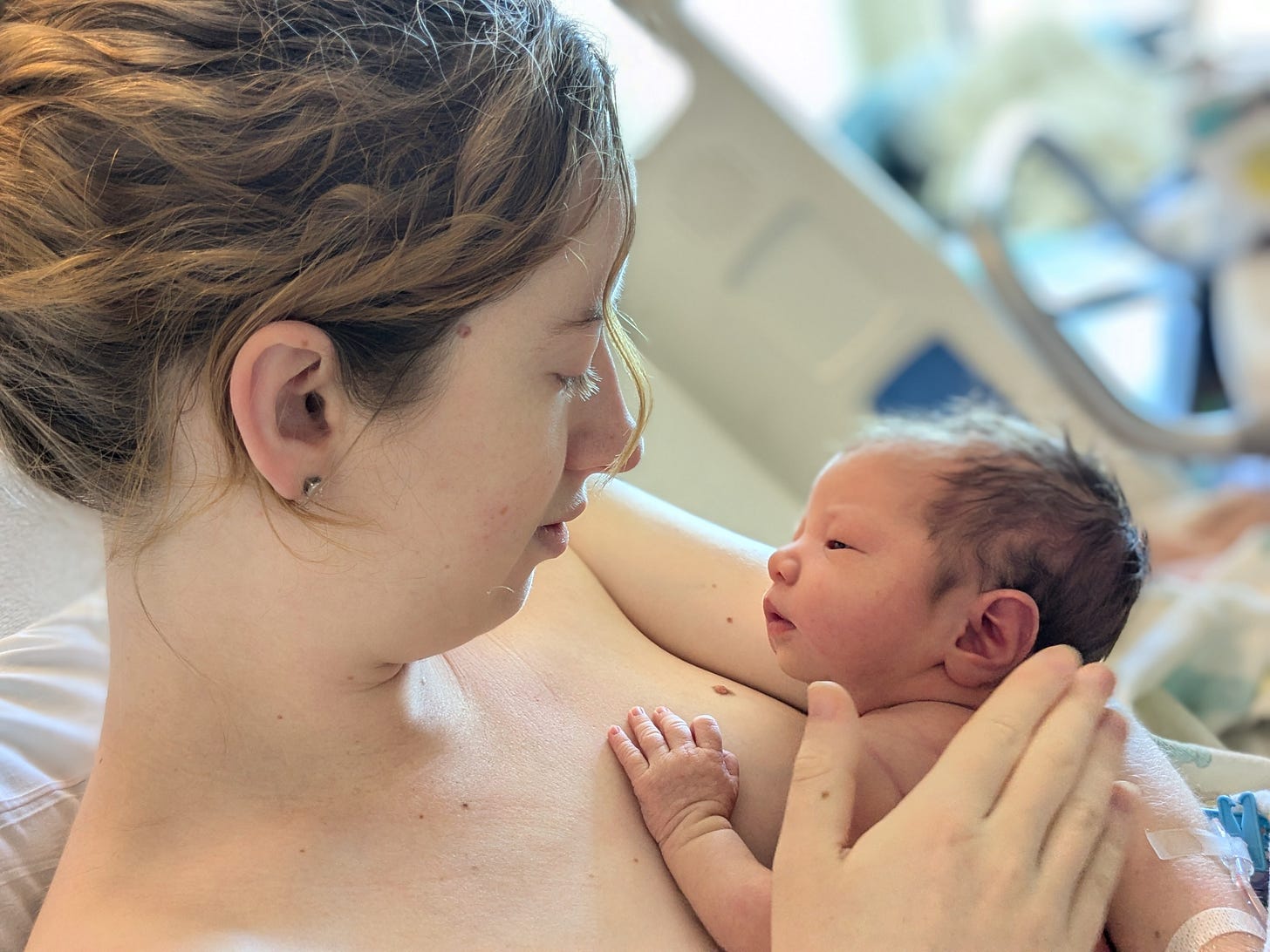
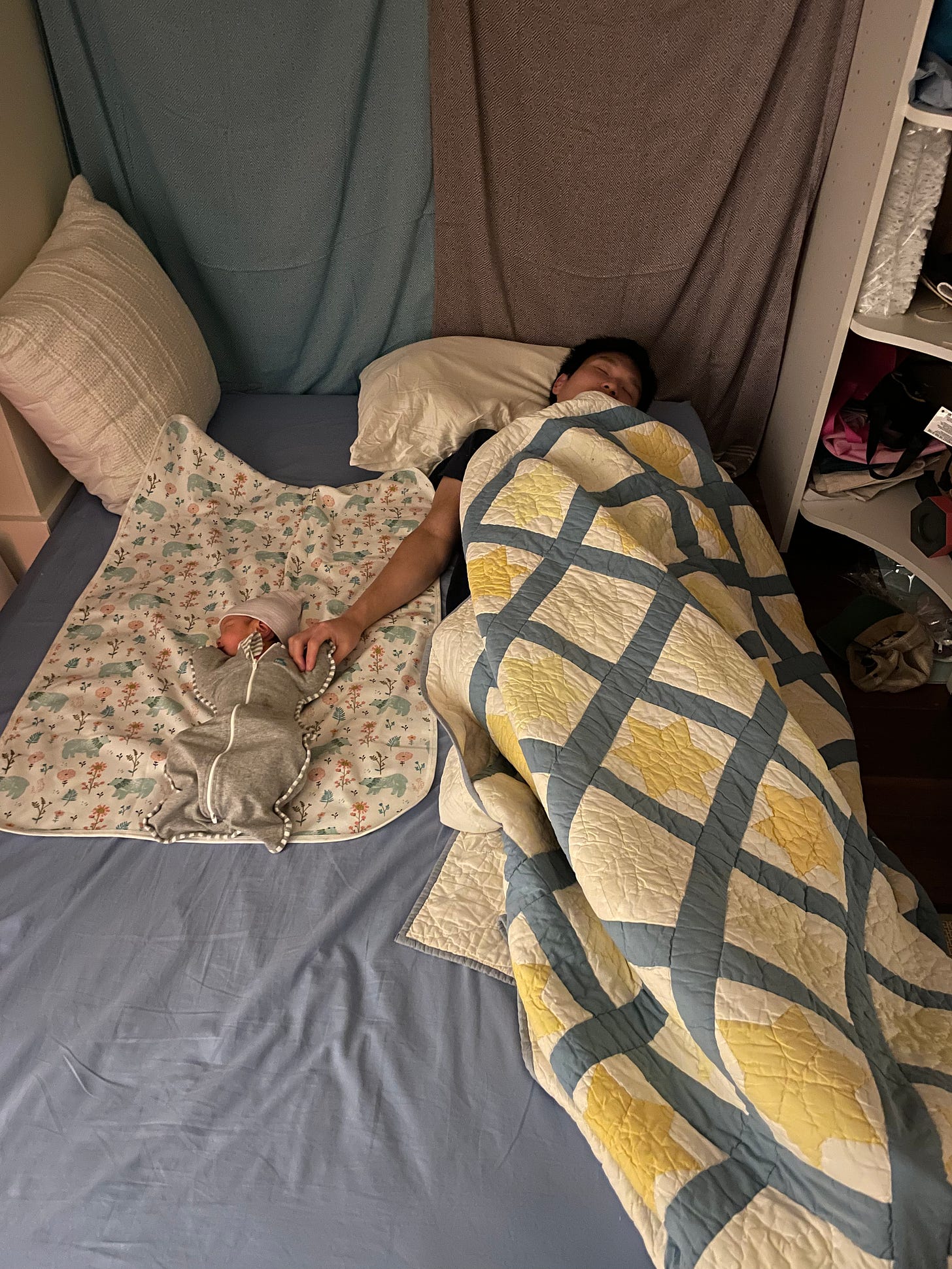
when my eldest was a baby, like once a month i would tell my friends that they had to come see him because he was so cute he must be at PEAK CUTENESS and then the next month he would get EVEN CUTER! miracles still exist
Holy kermoly, can confirm: objectively extremely cute baby! (Also totally agree about cosleeping.)